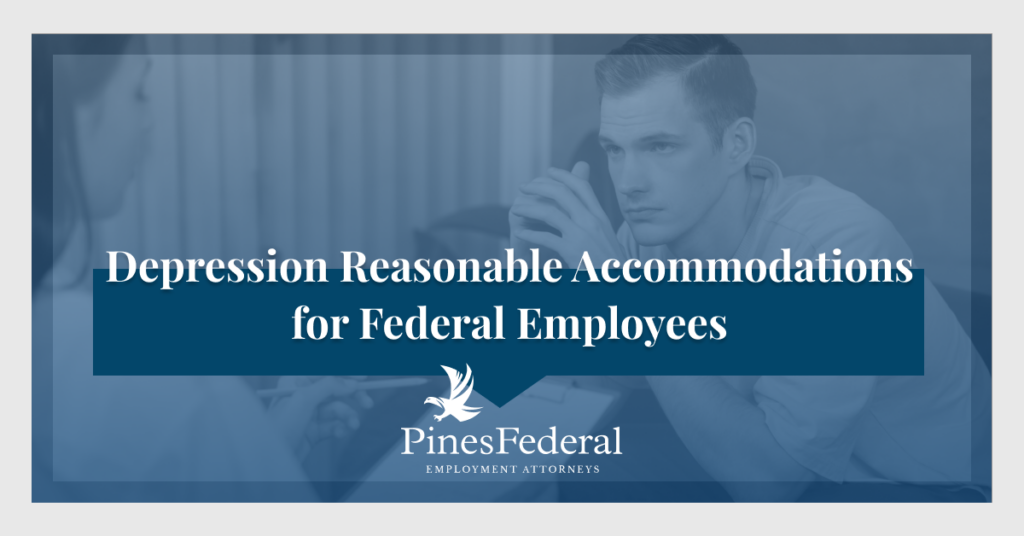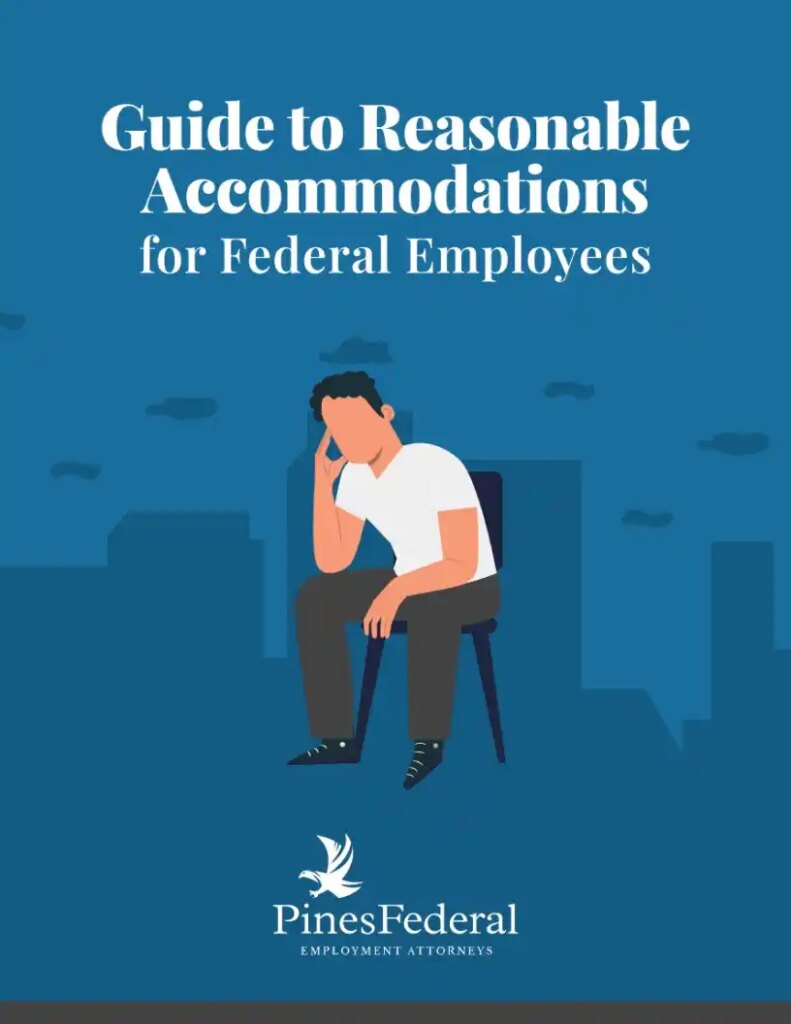
Depression is a debilitating mental health disorder that affects over 20 million Americans.
As you can imagine, it can have significant and lasting impacts on an individual’s ability to perform their job duties effectively.
This is especially true in high-stress environments like the federal workplace.
However, the good news is that there are workplace accommodations for depression. In fact, the law enshrines your right to get a reasonable accommodation for depression.
This article will provide an overview of depression as a disability under the Americans with Disabilities Act (ADA).
Our EEOC reasonable accommodations attorneys will also explore potential workplace accommodations available to federal employees with depression and how employees can request reasonable accommodations for depression.
Learn how we can help you today by calling (800) 801-0598 or filling out our online form.
Is Depression a Disability Under the ADA?

Sometimes. The Americans with Disabilities Act (ADA) is a landmark federal law that prohibits discrimination against individuals with disabilities throughout every aspect of employment.
It also provides the primary definition of disability with regard to reasonable accommodation claims. The ADA applies to federal employees under the Rehabilitation Act of 1973.
The ADA defines a disability as a physical or mental impairment that substantially limits one or more major life activities.
You can also be considered disabled if you have a record of having such an impairment or are generally viewed as having one.
Given this definition, you should note that not all cases of depression qualify as a disability. Rather, a case of depression is a disability under the ADA if it meets the criteria mentioned above.
This means that your depression must be severe enough to substantially limit your ability to perform major life activities.
Yet the phrase “major life activities” includes a vast array of things, including working, concentrating, interacting with others, and sleeping.
If you believe your depression meets these criteria, there’s a strong chance you can receive a reasonable accommodation.
[DOWNLOAD] Reasonable Accommodations for Federal Employees

Potential Workplace Accommodations for Depression
Reasonable accommodations are adjustments or modifications that enable individuals with disabilities to perform their job duties effectively.
The type of accommodation needed may vary depending on the specific circumstances, the nature of the job, and the severity of the depression. Potential workplace accommodations for depression include the following.
Flexible Work Schedule or Modified Hours
Allowing a flexible work schedule or an adjustment to your work hours may help accommodate your therapy appointments. It can also make medication management easier.
Remote Work or Telecommuting Options
The option to work remotely is a critical tool many employees need to reduce their stress. Consequently, it is a viable accommodation option for employees dealing with depression when it fits with their job duties.
Modified Job Duties or Reassignment
Sometimes, you may not be able to perform specific job duties due to your depression. In those situations, your employer may choose to modify minor job duties or reassign you to a similar position that fits your limitations.
Leave of Absence
If you need time off to seek treatment or manage your depression, receiving unpaid leave or having the opportunity to use accumulated paid leave may be a reasonable accommodation.
Remember that your employer does not need to provide accommodations that would cause them undue hardship or fundamentally alter the nature of your job.
An attorney can help you learn more about the ins and outs of depression and reasonable accommodations for federal employees.
Appealing Your Case
Sometimes, your federal employer may decide not to grant your request for accommodation. This may feel like a huge blow. However, it isn’t the end of the road.
Many federal employers initially reject legitimate reasonable accommodation requests because of insufficient information, laziness, or even outright stubbornness.
If this happens to you, consider hiring an attorney to appeal your case and negotiate with your employer.
Consult an Attorney to Get the Reasonable Accommodation You Deserve
As you probably know, depression can significantly impact your ability to perform your job duties. However, the law guarantees you the right to work in an environment that accommodates your needs and supports your mental health.
Therefore, if you are a federal employee experiencing depression, consider requesting a reasonable accommodation to help you perform your job effectively and maintain your mental health.
If you encounter difficulties or discrimination in the workplace related to your depression, consider consulting with one of the experienced federal employment attorneys at Pines Federal.
We can provide you with tailored guidance and outstanding legal representation. Unlike many other firms, we have extensive experience in federal employment matters, including reasonable accommodation claims.
Over the years, we’ve helped countless clients reclaim their rights and receive the accommodation they need. Don’t wait to get started. Contact us at (800) 801-0598 or reach out online to schedule your initial consultation today.